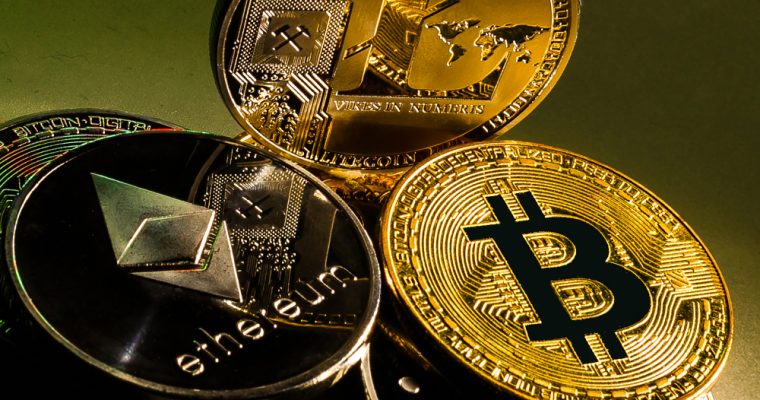Beijing News: Cryptocurrency fever continues unabated, nine countries speak out in January
Beijing News reporter: Cheng Weimiao
Source: Beijing News
Editor's Note: The original title " Libra Coin Meets" Red Light "Digital Currency Popularity Does Not Decrease Voices of Nine Nations in One Month "
Recently, according to Reuters news, the EU finance ministers agreed that private digital currencies (such as Facebook's Libra Libra) should not be allowed to enter the EU until the risks posed by them are clearly addressed.
- The central bank's legal digital currency pilot project is expected to land in Shenzhen, Suzhou and other places
- How does blockchain change the banking industry? A complete overview of the blockchain path of state-owned banks
- Research Report | The latest progress of global central bank digital currencies
Earlier, the European Union has shown a strong stance on Libra. Under regulatory pressure, several Libra association members, including international e-commerce giant eBay, payment giant PayPal, international card organization Visa and Master, have announced their withdrawal.
However, the global discussion on digital currencies continues unabated. According to incomplete statistics from Beijing News reporters, in the past month, nine central banks have voiced their opinions on national digital currencies. Among them, China and France have stated that they are actively promoting the development of digital currencies. It is clear that there is currently no need to issue national digital currencies.
Actively promoting factions: China, France and other countries indicated that they are actively promoting digital currency research and development
Recently, several current and former officials of the People's Bank of China talked about digital currencies in public speeches.
Fan Yifei, deputy governor of the People's Bank of China, revealed that currently the central bank's legal digital currency has basically completed the top-level design, standard formulation, function research and development, and joint testing. The next step will be to rationally select pilot verification areas, scenarios and service scopes, continue to optimize and enrich functions, and steadily promote the introduction and application of digital forms of fiat currencies.
Zhou Xiaochuan, former governor of the People ’s Bank of China, said that the central bank ’s digital currency will still focus on the country, and may focus more on providing wholesale services between banks and third-party payment. Retail services will have a great impact on the existing financial system. . If cross-border business is targeted, a joint mechanism may be needed.
Mu Changchun, director of the Digital Currency Research Institute of the People's Bank of China, emphasized that the central bank's digital currency will meet the public's privacy transaction needs and provide more redundancy for the current electronic payment system. China's current payment system also has market segmentation and friction. It is hoped that in the future, the central bank's digital currency will establish a smoother and more universal payment method, which can cover remote areas and promote financial inclusion.
For the European Union that gave Libra a "red light", its member state France proposed that the euro zone should consider establishing a central bank digital currency (CBDC) and blockchain settlement system. Compared with the existing technology, this system can be faster and cheaper To the euro. The deputy governor of the French central bank, DenisBeau, said that supporting distributed ledger technology (DLT) will likely solve many outstanding market issues. One solution that the French central bank is considering is CBDC.
Ghana's central bank governor Ernest Addison said that the Central Bank of Ghana is considering issuing a digital currency to accommodate the growth of electronic payment systems.
Mubarak, governor of the UAE central bank, said that the UAE-Saudi digital currency project will help reduce the cost of remittances and will also help promote interbank transfers and mutual trade between the two countries. Mubarak also noted that the two countries have also launched a distributed ledger "proof of concept" system to facilitate cross-border settlement.
No Temporary Issue: Central Banks of the United States, Russia, Canada, and South Korea Clearly Do Not Need to Issue National Digital Currency
There are still many countries that clearly do not need to issue national digital currencies at this time. The Beijing News reporter combed and found that most of these countries are waiting to see the progress of Libra and other countries' central bank digital currency issuance plans. The original need for issuance mainly includes the security and stability of digital currencies.
Last week, US Treasury Secretary Mnuchin said at a House Financial Services Committee hearing that he agreed with Fed Chairman Powell that the Fed will not need to issue digital currency in the next five years. Regarding Facebook's digital currency, Libra, Mnuchin emphasized that if Facebook wants to create digital currency, he has no opinion on this, but needs to fully comply with bank secrecy and anti-money laundering regulations and must not be used to finance illegal activities such as terrorism.
Powell previously responded to the question from the US representative about whether the Fed plans to issue national digital currencies. The Fed is conducting small research-centric experiments to gain experience and better understand the opportunities and limitations of the CBDC, while paying close attention to Many central banks are exploring digital currencies, but there are currently no plans to issue digital currencies in US dollars.
The Bank of Canada's deputy governor said that there is no reason to issue digital currency at present, but it is foreseeable that future preparations are needed for this.
Officials responsible for digital payments research at the Bank of Korea said there are currently no plans to issue government-controlled digital currencies or central bank digital currencies. Since Libra is not yet online, it is necessary to maintain close communication with counterparts in other countries on how to deal with this issue. "Most Koreans don't have any difficulty using the current payment methods for transactions, in which case we don't have to rush to catch up with the latest trends, whose security and stability have not been proven."
The Tunisian central bank has recently been rumored to be a oolong. The Beijing News reporter learned from the Tunisian central bank's official website that the bank has denied rumors about the official digital currency development based on the blockchain platform Universa. The bank said it is working on financial digitization and is currently in the stage of examining all existing alternatives, including central bank digital currencies, but this choice is still in the reflection stage.
In a recent speech to the State Duma, Russia's central bank governor Elvira Nabiullina stated that it is studying how digital currencies in many countries work in its country, but does not support any form of "private funds", which specifically mentions cryptocurrencies. She had previously stated that she was studying national digital currencies, but believed that there were many risks and that Russia did not need to issue national digital currencies.
We will continue to update Blocking; if you have any questions or suggestions, please contact us!
Was this article helpful?
93 out of 132 found this helpful
Related articles
- Ukraine officially legalizes cryptocurrency payments and will strictly abide by FATF regulatory rules
- Summary of Special Subsidy Policies for the Blockchain Industry in 10 Cities
- Popular Science | Data Privacy Protection Mechanism + Blockchain Application Scenarios
- Risk of Compound being overlooked: insufficient liquidity and bank runs
- Industry Blockchain Weekly: Banks Take the Lead, Hainan's Policies Are Most Aggressive
- The bridge for millions of users to enter the world of cryptocurrencies: an article to understand the Ethereum expansion solution ZK Sync
- The demand for cryptocurrencies may skyrocket! What else does Deutsche Bank report "Imagine 2030" imply?






